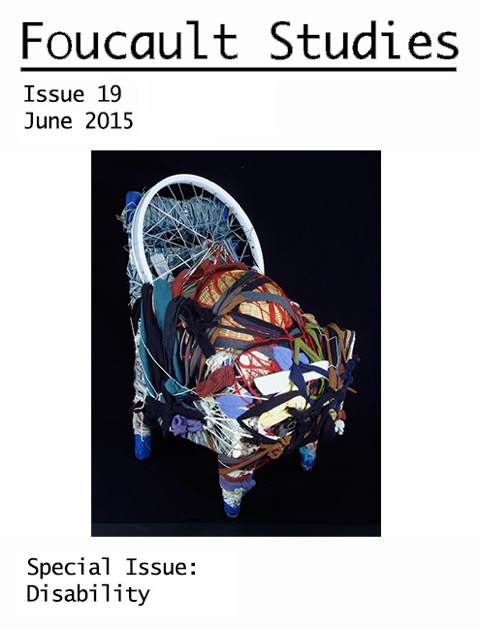Foucault on Ethics and Subjectivity: ‘Care of the Self’ and ‘Aesthetics of Existence’
DOI:
https://doi.org/10.22439/fs.v0i19.4819Keywords:
Ethics, subjectivity, Care of the Self, Aesthetics of Existence, form-of-lifeAbstract
This paper considers the structure of the ethical subject found in Foucault’s late works on ethics, and gives an account of his two major ethical concepts: “care of the self” and “aesthetics of existence.” The “care of the self,” it is argued, gives Foucault a way of conceptualising ethics which does not rely on juridical categories, and which does not conceive the ethical subject on the model of substance. The “care of the self” entails an understanding of the ethical subject as a process which is always in a relation, specifically in a relation to itself. Using his essay “What is an Author,” it is argued that the subject of the “aesthetics of existence,” like the author of a text, is understood to be fully immanent to the “object” which it is usually considered to be opposed to and separated from. Rather than aiming at a true expression of an “authentic” inner substance, Foucault’s “aesthetics of existence” leads instead to practices of “creativity,” whose form cannot be given in advance.Downloads
Published
2015-06-17
How to Cite
Smith, D. (2015). Foucault on Ethics and Subjectivity: ‘Care of the Self’ and ‘Aesthetics of Existence’. Foucault Studies, (19), 135–150. https://doi.org/10.22439/fs.v0i19.4819
Issue
Section
Articles
License
Authors retain copyright to their work, but assign the right of the first publication to Foucault Studies. The work is subject to a CC BY-NC-ND 4.0 license, but despite these restrictions, authors can take for granted that Foucault Studies will permit articles published in Foucault Studies to be translated or reprinted in another format such as a book providing a full reference is made to Foucault Studies as the original place of publication.



